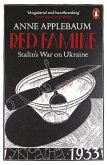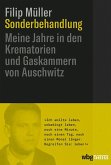Stefanie Fischer, Kim WünschmannA Graphic History
Oberbrechen: A German Village Confronts its Nazi Past
A Graphic History
Illustrator: Clarke, Liz
Stefanie Fischer, Kim WünschmannA Graphic History
Oberbrechen: A German Village Confronts its Nazi Past
A Graphic History
Illustrator: Clarke, Liz
- Broschiertes Buch
- Merkliste
- Auf die Merkliste
- Bewerten Bewerten
- Teilen
- Produkt teilen
- Produkterinnerung
- Produkterinnerung
Oberbrechen: A German Village Confronts Its Nazi Past is a new title in OUP's Graphic History Series that chronicles the events of the Holocaust and its aftermath in a small village in rural Germany. Based on meticulous research and using powerful visual storytelling, the book provides a multilayered narrative that explores the experiences of both Jewish and non-Jewish villagers from the First World War to the present. Its focus on how "ordinary" people experienced this time offers a new and illuminating insight into everyday life and the processes of violence, rupture, and reconciliation that…mehr
Andere Kunden interessierten sich auch für
![Judgement at Tokyo Judgement at Tokyo]() Gary J. BassJudgement at Tokyo17,99 €
Gary J. BassJudgement at Tokyo17,99 €![Red Famine Red Famine]() Anne ApplebaumRed Famine10,99 €
Anne ApplebaumRed Famine10,99 €![Judgement at Tokyo Judgement at Tokyo]() Gary J. BassJudgement at Tokyo16,99 €
Gary J. BassJudgement at Tokyo16,99 €![Colonial Paradigms of Violence Colonial Paradigms of Violence]() Colonial Paradigms of Violence42,00 €
Colonial Paradigms of Violence42,00 €![Mengele Mengele]() David G. MarwellMengele28,00 €
David G. MarwellMengele28,00 €![Bloodlands Bloodlands]() Timothy SnyderBloodlands34,00 €
Timothy SnyderBloodlands34,00 €![Sonderbehandlung Sonderbehandlung]() Filip MüllerSonderbehandlung28,00 €
Filip MüllerSonderbehandlung28,00 €-
-
-
Oberbrechen: A German Village Confronts Its Nazi Past is a new title in OUP's Graphic History Series that chronicles the events of the Holocaust and its aftermath in a small village in rural Germany. Based on meticulous research and using powerful visual storytelling, the book provides a multilayered narrative that explores the experiences of both Jewish and non-Jewish villagers from the First World War to the present. Its focus on how "ordinary" people experienced this time offers a new and illuminating insight into everyday life and the processes of violence, rupture, and reconciliation that characterized the history of the twentieth century in Germany and beyond. The graphic narrative is accompanied by source documents published in English translation for the first time, an essay on the wider historical context, and an incisive reflection on the writing of this book--and of history more broadly.
Produktdetails
- Produktdetails
- Verlag: Oxford University Press
- Seitenzahl: 296
- Erscheinungstermin: 11. November 2024
- Englisch
- ISBN-13: 9780197566039
- ISBN-10: 0197566030
- Artikelnr.: 74050467
- Herstellerkennzeichnung
- Libri GmbH
- Europaallee 1
- 36244 Bad Hersfeld
- gpsr@libri.de
- Verlag: Oxford University Press
- Seitenzahl: 296
- Erscheinungstermin: 11. November 2024
- Englisch
- ISBN-13: 9780197566039
- ISBN-10: 0197566030
- Artikelnr.: 74050467
- Herstellerkennzeichnung
- Libri GmbH
- Europaallee 1
- 36244 Bad Hersfeld
- gpsr@libri.de
Stefanie Fischer holds a Ph.D. from Technische Universität Berlin. She is currently a faculty member at the Center for Antisemitism Research at Technische Universität Berlin. Her fields of scholarly research are German-Jewish history and Holocaust Studies. Fischer is the author of Jewish Cattle Traders in the German Countryside, 1919-1939: Economic Trust and Antisemitic Violence (2024) and has published numerous articles on German-Jewish history and culture. Kim Wünschmann is Director of the Institute for the History of the German Jews in Hamburg. She obtained her Ph.D. from Birkbeck, University of London. Her research centers on German-Jewish history, Holocaust Studies, and legal history. She is the author of Before Auschwitz: Jewish Prisoners in the Prewar Concentration Camps (2015) and coeditor of Living the German Revolution 1918-19: Expectations, Experiences, Responses (2023). Liz Clarke is a professional illustrator based in Cape Town, South Africa. She has contributed to a variety of graphic history publications, including several titles in the Graphic History Series published by Oxford University Press.
* List of Maps
Tables
and Figures * Preface * Acknowledgments * About the Authors and the Illustrator * Part I: The Graphic History * Chapter 1: Oberbrechen * Chapter 2: Nazi Persecution * Chapter 3: War
Holocaust
and Rescue * Chapter 4: Justice? * Chapter 5: The Orange Book * Chapter 6: Epilogue * Part II: The Sources * Document 1: Letter from an Unknown Relative to Herman Stern in Valley City
North Dakota
July 24
1933 * Document 2: Letter from Dora and Moses Stern
Oberbrechen
to Herman Stern in Valley City
North Dakota
December 31
1933 * Document 3: Letter from Ilse Stern
[New York]
to Herman Stern in Valley City
North Dakota
March 15
1939 * Document 4: Letter from Herman Stern
Valley City
North Dakota
to James S. Milloy in Washington
DC
January 15
1941 * Document 5: Letter from Herman Stern
Valley City
North Dakota
to Ruth Harrison
Office of James S. Milloy in Washington
DC
March 19
1941 * Document 6: Letter from Herman Stern
Valley City
North Dakota
to US Secretary of State Cordell Hull in Washington
DC
August 27
1941 * Document 7: Eugen Caspary
Diary Entry
November 16
1944 * Document 8: Carl Reifert
Entry in the Oberbrechen School Chronicle Detailing Events in 1945
undated. * Document 9: Father Alois Kunz
Statement in the Denazification Case of Former Oberbrechen Mayor Hugo Trost
Oberbrechen
April 29
1948 * Document 10: Letter from Franz Pabst
Flörsheim am Main
to the Denazification Board in Limburg
May 22
1948 * Document 11: Letter from Kurt Stern
New York
to the Denazification Board in Limburg
July 12
1948. * Document 12: Letter from Albert Schmidt
Oberbrechen
to Herman Stern in Valley City
North Dakota
July 20
1948 * Document 13: Minutes of the Public Session of the Appeals Court in Wiesbaden
Reviewing the Decision of the Denazification Board in Limburg
December 13
1949 * Document 14: Irene Lenkiewicz
née Lichtenstein
Account of Her Life under Nazi Persecution and in Exile
Composed in Córdoba
Argentina
November 25
1958 * Document 15: Letter from Carl Reifert to the Compensation Office in Wiesbaden
May 3
1960 * Document 16: Letter from the Compensation Office
Wiesbaden
to Gertrud Marx in Oberbrechen
June 16
1961 * Document 17: Letter from Gertrud Marx
Oberbrechen
to the Compensation Office in Wiesbaden
July 1
1961 * Document 18: Letter from Mayor Josef Keuler
Oberbrechen
to the Wiesbaden District Administrator
June 26
1961 * Document 19: Medical Opinion from Neurology Specialists for Selma Altman
The Hacker Clinic
Beverly Hills
California
March 1966 * Document 20: Letter from Selma Altman
Los Angeles
to Mayor Josef Kramm in Oberbrechen
November 26
1973 * Document 21: Letter from Eugen Caspary
Niederselters
to Herman Stern in Valley City
North Dakota
July 7
1974 * Document 22: Letter from Gustave and Gertrude Stern
Seattle
to Eugen Caspary in Niederselters
July 11
1974 * Document 23: Letter from Gustave Stern
Seattle
to Mayor Josef Kramm in Oberbrechen
August 1
1974 * Document 24: Letter from Gustave Stern
Seattle
to Eugen Caspary
Niederselters
September 28
1974 * Document 25: Eugen Caspary
"Jewish Citizens in Oberbrechen
1711-1942: A Survey
" 1975 * Document 26: Nassauische Landeszeitung
Report on Kurt Lichtenstein's First Postwar Visit to Oberbrechen
April 24
1978 * Document 27: Christmas Greetings from Selma Altman
Los Angeles
to Mayor Josef Kramm in Oberbrechen
December 1980 * Document 28: Provisional Minutes of a Meeting on "Catholic Resistance Against the Hitler Youth and the Repercussions of the National Socialist Seizure of Power in Oberbrechen
" July 30
1984 * Document 29: Nassauische Neue Presse
Report on Kurt Lichtenstein's Visit to Oberbrechen
November 29
1986 * Document 30: Letter from Eugen Caspary
Camberg-Erbach
to Kim Wünschmann in Jerusalem
July 3
2013 * Part III: The Historical Context * 1. Oberbrechen * 2. Nazi Persecution * 3. War
Holocaust
and Rescue * 4. Justice? * 5. The "Orange Book
" or Local Attempts of Vergangenheitsbewältigung * Part IV: The Making of Oberbrechen * The Research Process * Reflections on Methodology * Using the Graphic History Medium * Essay Questions * Timeline * Bibliography * Family Trees
Tables
and Figures * Preface * Acknowledgments * About the Authors and the Illustrator * Part I: The Graphic History * Chapter 1: Oberbrechen * Chapter 2: Nazi Persecution * Chapter 3: War
Holocaust
and Rescue * Chapter 4: Justice? * Chapter 5: The Orange Book * Chapter 6: Epilogue * Part II: The Sources * Document 1: Letter from an Unknown Relative to Herman Stern in Valley City
North Dakota
July 24
1933 * Document 2: Letter from Dora and Moses Stern
Oberbrechen
to Herman Stern in Valley City
North Dakota
December 31
1933 * Document 3: Letter from Ilse Stern
[New York]
to Herman Stern in Valley City
North Dakota
March 15
1939 * Document 4: Letter from Herman Stern
Valley City
North Dakota
to James S. Milloy in Washington
DC
January 15
1941 * Document 5: Letter from Herman Stern
Valley City
North Dakota
to Ruth Harrison
Office of James S. Milloy in Washington
DC
March 19
1941 * Document 6: Letter from Herman Stern
Valley City
North Dakota
to US Secretary of State Cordell Hull in Washington
DC
August 27
1941 * Document 7: Eugen Caspary
Diary Entry
November 16
1944 * Document 8: Carl Reifert
Entry in the Oberbrechen School Chronicle Detailing Events in 1945
undated. * Document 9: Father Alois Kunz
Statement in the Denazification Case of Former Oberbrechen Mayor Hugo Trost
Oberbrechen
April 29
1948 * Document 10: Letter from Franz Pabst
Flörsheim am Main
to the Denazification Board in Limburg
May 22
1948 * Document 11: Letter from Kurt Stern
New York
to the Denazification Board in Limburg
July 12
1948. * Document 12: Letter from Albert Schmidt
Oberbrechen
to Herman Stern in Valley City
North Dakota
July 20
1948 * Document 13: Minutes of the Public Session of the Appeals Court in Wiesbaden
Reviewing the Decision of the Denazification Board in Limburg
December 13
1949 * Document 14: Irene Lenkiewicz
née Lichtenstein
Account of Her Life under Nazi Persecution and in Exile
Composed in Córdoba
Argentina
November 25
1958 * Document 15: Letter from Carl Reifert to the Compensation Office in Wiesbaden
May 3
1960 * Document 16: Letter from the Compensation Office
Wiesbaden
to Gertrud Marx in Oberbrechen
June 16
1961 * Document 17: Letter from Gertrud Marx
Oberbrechen
to the Compensation Office in Wiesbaden
July 1
1961 * Document 18: Letter from Mayor Josef Keuler
Oberbrechen
to the Wiesbaden District Administrator
June 26
1961 * Document 19: Medical Opinion from Neurology Specialists for Selma Altman
The Hacker Clinic
Beverly Hills
California
March 1966 * Document 20: Letter from Selma Altman
Los Angeles
to Mayor Josef Kramm in Oberbrechen
November 26
1973 * Document 21: Letter from Eugen Caspary
Niederselters
to Herman Stern in Valley City
North Dakota
July 7
1974 * Document 22: Letter from Gustave and Gertrude Stern
Seattle
to Eugen Caspary in Niederselters
July 11
1974 * Document 23: Letter from Gustave Stern
Seattle
to Mayor Josef Kramm in Oberbrechen
August 1
1974 * Document 24: Letter from Gustave Stern
Seattle
to Eugen Caspary
Niederselters
September 28
1974 * Document 25: Eugen Caspary
"Jewish Citizens in Oberbrechen
1711-1942: A Survey
" 1975 * Document 26: Nassauische Landeszeitung
Report on Kurt Lichtenstein's First Postwar Visit to Oberbrechen
April 24
1978 * Document 27: Christmas Greetings from Selma Altman
Los Angeles
to Mayor Josef Kramm in Oberbrechen
December 1980 * Document 28: Provisional Minutes of a Meeting on "Catholic Resistance Against the Hitler Youth and the Repercussions of the National Socialist Seizure of Power in Oberbrechen
" July 30
1984 * Document 29: Nassauische Neue Presse
Report on Kurt Lichtenstein's Visit to Oberbrechen
November 29
1986 * Document 30: Letter from Eugen Caspary
Camberg-Erbach
to Kim Wünschmann in Jerusalem
July 3
2013 * Part III: The Historical Context * 1. Oberbrechen * 2. Nazi Persecution * 3. War
Holocaust
and Rescue * 4. Justice? * 5. The "Orange Book
" or Local Attempts of Vergangenheitsbewältigung * Part IV: The Making of Oberbrechen * The Research Process * Reflections on Methodology * Using the Graphic History Medium * Essay Questions * Timeline * Bibliography * Family Trees
* List of Maps
Tables
and Figures * Preface * Acknowledgments * About the Authors and the Illustrator * Part I: The Graphic History * Chapter 1: Oberbrechen * Chapter 2: Nazi Persecution * Chapter 3: War
Holocaust
and Rescue * Chapter 4: Justice? * Chapter 5: The Orange Book * Chapter 6: Epilogue * Part II: The Sources * Document 1: Letter from an Unknown Relative to Herman Stern in Valley City
North Dakota
July 24
1933 * Document 2: Letter from Dora and Moses Stern
Oberbrechen
to Herman Stern in Valley City
North Dakota
December 31
1933 * Document 3: Letter from Ilse Stern
[New York]
to Herman Stern in Valley City
North Dakota
March 15
1939 * Document 4: Letter from Herman Stern
Valley City
North Dakota
to James S. Milloy in Washington
DC
January 15
1941 * Document 5: Letter from Herman Stern
Valley City
North Dakota
to Ruth Harrison
Office of James S. Milloy in Washington
DC
March 19
1941 * Document 6: Letter from Herman Stern
Valley City
North Dakota
to US Secretary of State Cordell Hull in Washington
DC
August 27
1941 * Document 7: Eugen Caspary
Diary Entry
November 16
1944 * Document 8: Carl Reifert
Entry in the Oberbrechen School Chronicle Detailing Events in 1945
undated. * Document 9: Father Alois Kunz
Statement in the Denazification Case of Former Oberbrechen Mayor Hugo Trost
Oberbrechen
April 29
1948 * Document 10: Letter from Franz Pabst
Flörsheim am Main
to the Denazification Board in Limburg
May 22
1948 * Document 11: Letter from Kurt Stern
New York
to the Denazification Board in Limburg
July 12
1948. * Document 12: Letter from Albert Schmidt
Oberbrechen
to Herman Stern in Valley City
North Dakota
July 20
1948 * Document 13: Minutes of the Public Session of the Appeals Court in Wiesbaden
Reviewing the Decision of the Denazification Board in Limburg
December 13
1949 * Document 14: Irene Lenkiewicz
née Lichtenstein
Account of Her Life under Nazi Persecution and in Exile
Composed in Córdoba
Argentina
November 25
1958 * Document 15: Letter from Carl Reifert to the Compensation Office in Wiesbaden
May 3
1960 * Document 16: Letter from the Compensation Office
Wiesbaden
to Gertrud Marx in Oberbrechen
June 16
1961 * Document 17: Letter from Gertrud Marx
Oberbrechen
to the Compensation Office in Wiesbaden
July 1
1961 * Document 18: Letter from Mayor Josef Keuler
Oberbrechen
to the Wiesbaden District Administrator
June 26
1961 * Document 19: Medical Opinion from Neurology Specialists for Selma Altman
The Hacker Clinic
Beverly Hills
California
March 1966 * Document 20: Letter from Selma Altman
Los Angeles
to Mayor Josef Kramm in Oberbrechen
November 26
1973 * Document 21: Letter from Eugen Caspary
Niederselters
to Herman Stern in Valley City
North Dakota
July 7
1974 * Document 22: Letter from Gustave and Gertrude Stern
Seattle
to Eugen Caspary in Niederselters
July 11
1974 * Document 23: Letter from Gustave Stern
Seattle
to Mayor Josef Kramm in Oberbrechen
August 1
1974 * Document 24: Letter from Gustave Stern
Seattle
to Eugen Caspary
Niederselters
September 28
1974 * Document 25: Eugen Caspary
"Jewish Citizens in Oberbrechen
1711-1942: A Survey
" 1975 * Document 26: Nassauische Landeszeitung
Report on Kurt Lichtenstein's First Postwar Visit to Oberbrechen
April 24
1978 * Document 27: Christmas Greetings from Selma Altman
Los Angeles
to Mayor Josef Kramm in Oberbrechen
December 1980 * Document 28: Provisional Minutes of a Meeting on "Catholic Resistance Against the Hitler Youth and the Repercussions of the National Socialist Seizure of Power in Oberbrechen
" July 30
1984 * Document 29: Nassauische Neue Presse
Report on Kurt Lichtenstein's Visit to Oberbrechen
November 29
1986 * Document 30: Letter from Eugen Caspary
Camberg-Erbach
to Kim Wünschmann in Jerusalem
July 3
2013 * Part III: The Historical Context * 1. Oberbrechen * 2. Nazi Persecution * 3. War
Holocaust
and Rescue * 4. Justice? * 5. The "Orange Book
" or Local Attempts of Vergangenheitsbewältigung * Part IV: The Making of Oberbrechen * The Research Process * Reflections on Methodology * Using the Graphic History Medium * Essay Questions * Timeline * Bibliography * Family Trees
Tables
and Figures * Preface * Acknowledgments * About the Authors and the Illustrator * Part I: The Graphic History * Chapter 1: Oberbrechen * Chapter 2: Nazi Persecution * Chapter 3: War
Holocaust
and Rescue * Chapter 4: Justice? * Chapter 5: The Orange Book * Chapter 6: Epilogue * Part II: The Sources * Document 1: Letter from an Unknown Relative to Herman Stern in Valley City
North Dakota
July 24
1933 * Document 2: Letter from Dora and Moses Stern
Oberbrechen
to Herman Stern in Valley City
North Dakota
December 31
1933 * Document 3: Letter from Ilse Stern
[New York]
to Herman Stern in Valley City
North Dakota
March 15
1939 * Document 4: Letter from Herman Stern
Valley City
North Dakota
to James S. Milloy in Washington
DC
January 15
1941 * Document 5: Letter from Herman Stern
Valley City
North Dakota
to Ruth Harrison
Office of James S. Milloy in Washington
DC
March 19
1941 * Document 6: Letter from Herman Stern
Valley City
North Dakota
to US Secretary of State Cordell Hull in Washington
DC
August 27
1941 * Document 7: Eugen Caspary
Diary Entry
November 16
1944 * Document 8: Carl Reifert
Entry in the Oberbrechen School Chronicle Detailing Events in 1945
undated. * Document 9: Father Alois Kunz
Statement in the Denazification Case of Former Oberbrechen Mayor Hugo Trost
Oberbrechen
April 29
1948 * Document 10: Letter from Franz Pabst
Flörsheim am Main
to the Denazification Board in Limburg
May 22
1948 * Document 11: Letter from Kurt Stern
New York
to the Denazification Board in Limburg
July 12
1948. * Document 12: Letter from Albert Schmidt
Oberbrechen
to Herman Stern in Valley City
North Dakota
July 20
1948 * Document 13: Minutes of the Public Session of the Appeals Court in Wiesbaden
Reviewing the Decision of the Denazification Board in Limburg
December 13
1949 * Document 14: Irene Lenkiewicz
née Lichtenstein
Account of Her Life under Nazi Persecution and in Exile
Composed in Córdoba
Argentina
November 25
1958 * Document 15: Letter from Carl Reifert to the Compensation Office in Wiesbaden
May 3
1960 * Document 16: Letter from the Compensation Office
Wiesbaden
to Gertrud Marx in Oberbrechen
June 16
1961 * Document 17: Letter from Gertrud Marx
Oberbrechen
to the Compensation Office in Wiesbaden
July 1
1961 * Document 18: Letter from Mayor Josef Keuler
Oberbrechen
to the Wiesbaden District Administrator
June 26
1961 * Document 19: Medical Opinion from Neurology Specialists for Selma Altman
The Hacker Clinic
Beverly Hills
California
March 1966 * Document 20: Letter from Selma Altman
Los Angeles
to Mayor Josef Kramm in Oberbrechen
November 26
1973 * Document 21: Letter from Eugen Caspary
Niederselters
to Herman Stern in Valley City
North Dakota
July 7
1974 * Document 22: Letter from Gustave and Gertrude Stern
Seattle
to Eugen Caspary in Niederselters
July 11
1974 * Document 23: Letter from Gustave Stern
Seattle
to Mayor Josef Kramm in Oberbrechen
August 1
1974 * Document 24: Letter from Gustave Stern
Seattle
to Eugen Caspary
Niederselters
September 28
1974 * Document 25: Eugen Caspary
"Jewish Citizens in Oberbrechen
1711-1942: A Survey
" 1975 * Document 26: Nassauische Landeszeitung
Report on Kurt Lichtenstein's First Postwar Visit to Oberbrechen
April 24
1978 * Document 27: Christmas Greetings from Selma Altman
Los Angeles
to Mayor Josef Kramm in Oberbrechen
December 1980 * Document 28: Provisional Minutes of a Meeting on "Catholic Resistance Against the Hitler Youth and the Repercussions of the National Socialist Seizure of Power in Oberbrechen
" July 30
1984 * Document 29: Nassauische Neue Presse
Report on Kurt Lichtenstein's Visit to Oberbrechen
November 29
1986 * Document 30: Letter from Eugen Caspary
Camberg-Erbach
to Kim Wünschmann in Jerusalem
July 3
2013 * Part III: The Historical Context * 1. Oberbrechen * 2. Nazi Persecution * 3. War
Holocaust
and Rescue * 4. Justice? * 5. The "Orange Book
" or Local Attempts of Vergangenheitsbewältigung * Part IV: The Making of Oberbrechen * The Research Process * Reflections on Methodology * Using the Graphic History Medium * Essay Questions * Timeline * Bibliography * Family Trees








